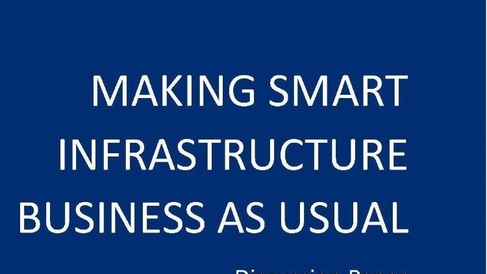
The Cambridge Centre for Smart Infrastructure and Construction (CSIC) organised a roundtable discussion with infrastructure clients, consultants, contractors, government and policy makers on 2 February 2024 at Mott MacDonald’s office in London. The goal of the workshop was to understand why smart infrastructure is still not ‘business as usual’ – i.e. why smart infrastructures solutions are not fully exploited to bring maximum value to clients and their stakeholders. This resulting paper summarises discussions at the roundtable and presents the following recommendations for action.
- Develop a ‘shared understanding’ of how systems-thinking applies to the built environment. Identify how to promote systems-thinking and collaboration across the industry.
- Explore where joined-up regulation can address system-wide issues and help smart solutions to realise better outcomes.
- Create a common framework for valuation of outcomes. This framework should apply across all national infrastructure when implementing smart solutions.
- Develop a suite of value case studies that demonstrate the benefits of smart solutions. This should include a consistent approach to benefit realisation.
- Create a timeline infographic of the value of data across the asset lifecycle. showing who gets value at various stages and how type of value changes across the stages and for different types of clients. This should show the different ways that clients and users realise value.
- Develop a common data standard for data sharing and collaboration across the industry. Work with existing projects such as CReDo, NDTP, and the Information Management Mandate.
- Consider codifying good practice to avoid reinventing the wheel with every project. Investigate how ontologies, data architectures and platforms can drive interoperability.
- Establish requirements for smart infrastructure solutions in design, construction, and asset management. This should articulate the benefits that smart solutions bring across the asset life cycle.
- Consider the impact of extended regulation periods on infrastructure clients. How do these affect the uptake of smart infrastructure solutions, and how do we avoid the pitfalls of short-term cycles.
- Work towards procurement standards for smart infrastructure in public works projects.
- Provide an anonymous platform where stories of failures can be shared to inform future initiatives.
- Consider the best ways to fill the skills and competency gap in data-centric approaches and smart infrastructure solutions (e.g. developing a data academy).
Read the full paper here.
